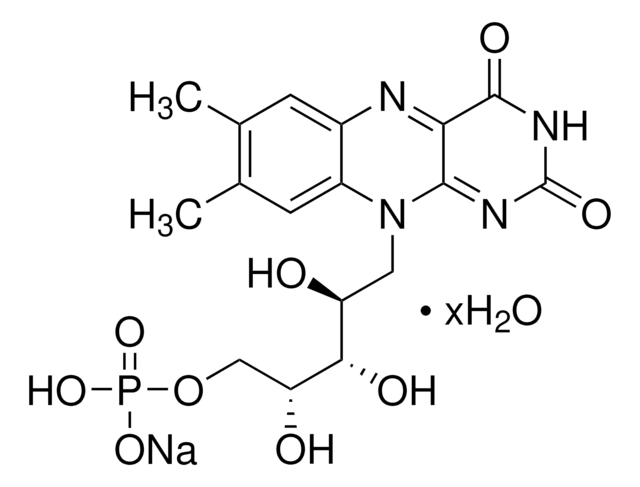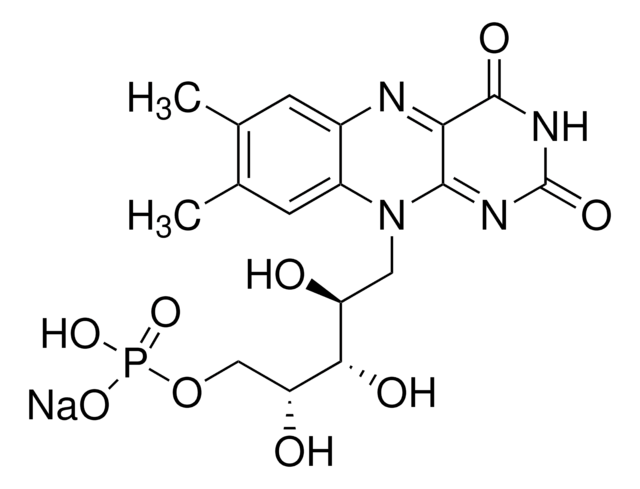F8399
Riboflavin 5′-monophosphate sodium salt hydrate
≥95% (HPLC)
Synonym(s):
FMN
About This Item
Recommended Products
Looking for similar products? Visit Product Comparison Guide
Related Categories
General description
Application
- in the study to examine FMN (flavin mononucleotide) photo-reduction in aqueous solutions
- to immobilize on titanium oxide modified carbon fibre to determine its electrochemical behavior
- in flavin identification
Biochem/physiol Actions
Preparation Note
Storage Class
11 - Combustible Solids
wgk_germany
WGK 3
flash_point_f
Not applicable
flash_point_c
Not applicable
ppe
Eyeshields, Gloves, type N95 (US)
Certificates of Analysis (COA)
Search for Certificates of Analysis (COA) by entering the products Lot/Batch Number. Lot and Batch Numbers can be found on a product’s label following the words ‘Lot’ or ‘Batch’.
Already Own This Product?
Find documentation for the products that you have recently purchased in the Document Library.
Customers Also Viewed
Articles
How riboflavin and othercell culture components affect the performance of serum-free, protein-free cell culture systems used for biomanufacturing heterologous proteins including monoclonal antibodies. The page introduces the in vitro chemistry and biochemistry of riboflavin.
Learn about the four membrane-bound protein complexes that make up the electron transport chain metabolic pathway supplying energy as ATP for cellular respiration.
Our team of scientists has experience in all areas of research including Life Science, Material Science, Chemical Synthesis, Chromatography, Analytical and many others.
Contact Technical Service




